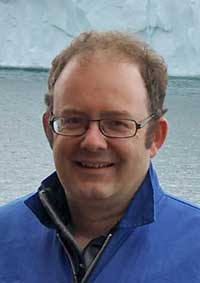05-BMG-EE3 Physical, Chemical and Biological Oceanography
Representative Heiko Pälike
This module introduces the basic processes in the atmosphere and ocean, investigates their essential forcing factors and explains the interaction between the two systems. Selected physical aspects are the Earth´s energy and water balances, the general circulation of the atmosphere, the wind-driven and thermohaline circulation of the ocean, the water masses and their formation as well as coastal upweling. Furthermore, it provides an overview of the biological productivity and carbon export in the ocean and their relation to macronutrients, trace elements and the ocean circulation. Exercises are an intergral part of this module and allow for a deeper insight in the important physical-chemical-biological processes in the atmosphere and ocean.
to identify key factors influencing the Earth´s climate system
to describe the processes that cause large-scale ocean currents
to recognize that ocean currents, marine life and the turnover of energy and matter are closely interlinked
to explain the elementary marine biogeochemical processes and outline the ""biological pump"" and its role in the marine carbon cycle
Fundamentals of Physics and Chemistry
Course Type 1: Lecture, Exercise (L+E) 5.0 SWS ( 70.0 h)
Tutorial(s): -
Workload:70.0 h presence time
42.0 h self-study
68.0 h exam workload
180 h total workload
module exam
exam elements: 1
SL: 0
100 % written exam
Charles Cockell et al.: An Introduction to the Earth-Life System. Cambridge University Press, 326 pp.,2008.
Hartmann, Dennis L.: Global Physical Climatology. Elsevier, 2nd edition, 498 pp., 2016.
Open University: Ocean Circulation. Butterworth-Heinemann, 2nd revised edition, 286 pp., 2004.
Basic Data
Bachelor Marine Geosciences
Module Type
Mandatory
Second Year of Study
Offering Departement
FB5 Geosciences
Wintersemester
Course LanguageEnglish
6 CP
5 SWS
Contact

Contact
Prof. Dr. Heiko Pälike
MARUM ZfT 5300
 marum.de
marum.deContact

Contact
Prof. Dr. Heiko Pälike
MARUM ZfT 5300
 marum.de
marum.de
